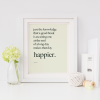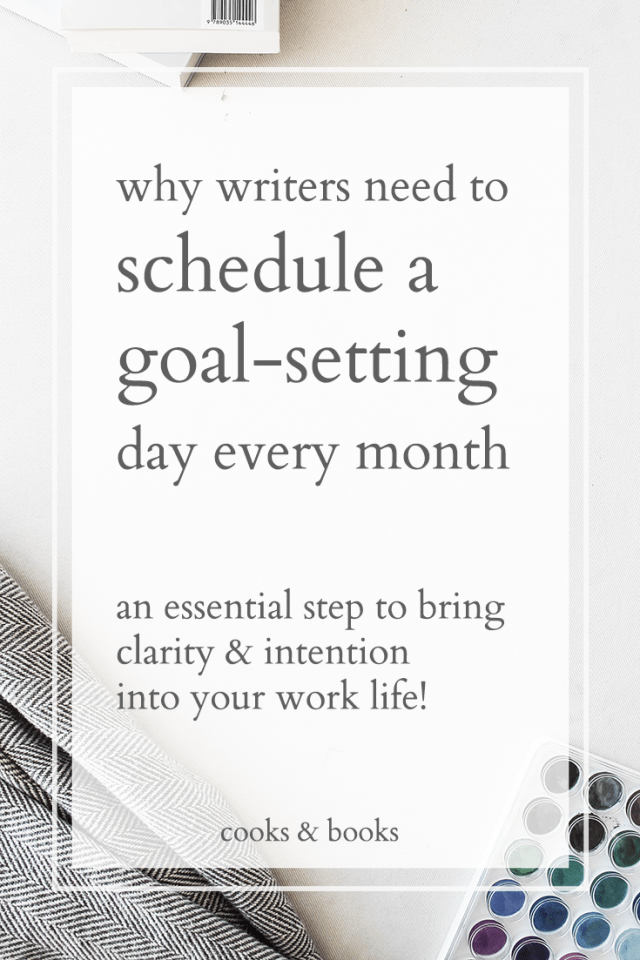How to start a writing blog in 2018: the easy step-by-step guide to show writers how to start a writing blog and get published.
“So her job is to stay at home and write about her life, and people actually read it?”
“Yep. And now we’re going to publish her book.”
I stared at my boss.
I was an editorial assistant at a New York publisher, and we had just acquired one of the imprint’s first blog-to-book projects. But we weren’t sure whether the blog’s readers—who were used to getting content for free—would pay $22.95 for a book. The skepticism was high, and we kept asking ourselves, “Why would someone pay for something they can get for free online?”
Then the book hit the New York Times bestseller list.
That book sold thousands of copies before it even hit bookstores, and then it sold thousands more once it was published.
It turned out that the author’s readers adored her, wanted more of her writing, and wanted to support her however they could. It turned out that great writing begets great readers, and great readers are insatiable.

I decided right then that blogging sounded amazing, and that I wanted to learn how to start a writing blog. (Um, work from home, write short articles, make a great living, and make friends who like the same things you do? Okay!). I lived in the world of publishing-by-committee, so it seemed exhilarating that someone could have a space where they could publish whatever they wanted.
And so I decided I wanted to join the fun & learn how to start a writing blog, too.
Well, actually I had to teach myself how to start a writing blog. I had no idea what I was doing. It took forever to get myself set up, and I spent even longer tinkering with it in my free time. Then when I became a Literary Agent, I finally got serious about it and found a focus: I wanted to talk about books with book people, and I wanted to share what I knew about publishing.
Now, I’ve been blogging for 4 years, make a handy little extra income from it, have met amazing book people, and have more creative discipline then I’ve ever had. Blogging is the hardest thing I do, and it’s also what pushes me to stay current and work harder for my authors.
Looking back on it, I still can’t believe how much blogging has transformed me.
How blogging can make you less introverted
Blogging turned introverted me into someone who, post by post, became comfortable sharing what I knew and what I thought. I pushed me to do things I would have been dead-terrified of. It taught me how the internet works (well, mostly), and it made me curious, instead of anxious, about all things tech.
Discipline + practice + pushing past discomfort? That’s also the secret formula for making it as a writer. And a blog, by its nature, builds both the skills and the readership needed to becoming a bestselling author.
In fact, nearly every single one of my authors has a blog. Their blogs got them their book deals.
I know an author who was turned away by book publishers because he didn’t have a platform. So he started a blog, built it over many years, then was scouted and wooed by book publishers. I know authors who make six and seven figures writing online about what they love, from the comfort of their homes, for millions of readers, who also eagerly buy their books.
That is why I believe it’s so important to take the first step and learn how to start a writing blog.
It’s not an easy path to learn how to start a writing blog and build it, but I still believe it to be the most reliable way to build a readership and a fanbase who will excitedly support anything you take on in your creative life. Here’s why:
Why should writers learn how to start a writing blog?

You can become a millionaire by working at home as a writer.
I know–it sounds too good to be true. But thousands of bloggers are doing it and making six and seven figure incomes by writing online. I wouldn’t believe it either, except that I know and represent some of those bloggers and authors. Some even make six-figures by working only part-time or while traveling the world.
Case in point: Lindsay and Bjork from Pinch of Yum make over $30,000 per month from their blog. Michelle from Making Sense of Cents makes nearly 1 million dollars per year from her blog.
And don’t we all want to be able to pay our bills and make a living through our writing and creative work? But you don’t need to write a bestselling book to make big bucks as a writer. Instead, think of blogging as a way to write regularly and hone your craft, all while you increase your creative discipline, build a readership and author platform, and make money.
Blogging really is one of the best ways to be paid very, very well for your writing. And as a writer, you’ll automatically have a huge advantage over other bloggers, because you already know how to write well and captivate readers.
A blog can make your writing career.
That sounds like an exaggeration, but nearly every single one of my published authors has a successful blog. Learning how to start a writing blog and then building a readership that will follow you to anything you do, like publishing a book, is the only foolproof way to succeed as a writer today.
At the end of the day, every writer and creative has to earn their audience, and sharing with that audience regularly and generously is the only way there.
Blogging is a ridiculously fun creative outlet.

Nothing can boost your creativity like a new medium. Blogging is just that—it’s writing in a different format and place than a notebook or manuscript.
And yes, it can seem overwhelming to learn how to start a writing blog sometimes, but I do have a step-by-step guide below to get you started on your writing blog!).
Remember that blogging is a long-term project. Just like learning to write well, you’re not going to understand all the mechanics and have all the skills right away. But if you take the next right step, one day at a time, you’ll be blown away by what you can eventually accomplish and how much fun you’ll have by relaxing into the learning process.
Even if you decide you don’t want—or need—to turn your writing blog into a side hustle and make extra income from it, you’ll find that the creative energy it brings to your days is its own reward.
You’ll meet amazing, inspiring people through your writing blog.
Many writers are introverted, so the idea of putting your writing online for anyone to see can be completely terrifying.
You don’t even know how much I get that. I didn’t share my blog with anyone but Jarrett for over 6 months. And it’s my job to encourage writers to put their work out there. How’s that for goofy?
But one post at a time, I started to break down my resistance to sharing my work and started to let myself be inspired and motivated by my amazing authors, who are doing so much good in the world by stepping out in a public way.
And as I tried to stay patient and improve 1% at a time, into infinity, I started to meet sweet and generous readers like you, who shoot me emails to thank me for an article, or ask a question, or just chat.
I’ll try not to gush too much, but you guys are what makes blogging worth it. I can’t tell you how much your sweet notes and smart thoughts mean to me, and if I know one thing, it’s that I want 2018 to be a year where we get to hang out and talk books more. Can we pinky swear to that?
Okay, now that I’ve gotten completely sappy on you (forgive me?), let me walk you through exactly how to start your writing blog in 2018, the easy, step-by-step way.
How to start a writing blog in 2018, the easy, step-by-step way

1. Register your domain with a hosting service.
When I learned how to start my writing blog, I spent half an afternoon researching hosting services and trying to untangle what in the heck I should do. I ultimately went with BlueHost because so many other bloggers I admired used them, and then I went straight to them when I helped Jarrett set up his portfolio site last year.
Here’s why I love them:
- It’s insanely easy. I knew exactly zero about tech when I started my writing blog, but Bluehost made it impossible to screw up. And with my tutorial below, you’ll see that your brand new, shiny blog is just a few clicks away.
- It costs just $4 per month. When I started out, I wanted to keep blog costs as low as possible, and it’s hard to find a better deal than the $3.95 per month for BlueHost. I also saw that—overwhelmingly—other bloggers I followed used and recommended BlueHost. That made it an easy, slam-dunk decision.
- They include a free domain name. Again, I recommend keeping costs down when you’re starting out, so getting a free, custom domain name for your site is a huge win.
- I definitely need good technical support. You know what’s annoying? Something going wrong with your blog, and you have no clue what it is or how to fix it. I’ve leaned on the BlueHost support live chat service many, many times, and I love that it makes you feel like you have your own tech geek on call.
- They have a guarantee, just in case. Let’s say you sign up for BlueHost, all excited to launch your blog, but tomorrow you wake up and realize you want to be a professional bull rider instead of a writer. That’s okay—they’ll refund you every penny within 30 days. And yeehaw for you!
A note on self-hosting, because I see this mistake all. the. time.
Some bloggers start out with a URL that has “.wordpress” ”blogspot” or another provider in their domain name, but I strongly discourage this.
First, readers are much less likely to take your blog seriously if it doesn’t have a direct URL (www.yourblogname.com); second, it will drastically limit your ability to design and format your blog the way you want; third, it will make it difficult to monetize your blog.
Even when I helped Jarrett set up a simple portfolio site for his writing, I insisted he go with self-hosting on BlueHost, because I think it’s one of the best investments you can make in your career. And if I bossed him around on that point, you know it’s because I really think it makes a difference!
2. Click the green “Get Started Now” button.
Navigate to BlueHost through my link, and you’ll be able to lock in the same $3.95 per month price I get through their affiliate program. (And thank you for your support!) Once you get there, click the green “Get started now” button to start setting up your WordPress writer blog on BlueHost.

3. Choose your plan.
I’ve always paid by the year, since it gets you a much, much better price, and I’m a big believer that you should give yourself time to settle into blogging and to experiment. The cheapest price, though, is for the 36 month package, so that’s the best option if you know you’ll be blogging for the long haul.

4. Choose your domain name.
I love that BlueHost lets you start with the fun part: deciding what to name your site! Ideally, you’ll want to choose a website name which has that domain (the URL) available.
(Otherwise, you’ll end up like me where people don’t know whether to call your site cooks and books or cooks plus books. [For the record, the blog name is said as cooks and books. Cooksplusbooks just happened to be the only domain I could get.] But I give past-Maria an eye roll every time someone asks.)

4. Enter in your account information.
This is as simple as it gets—just fill in your name, address, and the plan you’d like. I personally didn’t purchase the add-ons when I first set up my blog, but I’ll admit that I had to learn and add some of the search engine, backup, and security functionalities later on the hard way. Up to you!

5. Enter your billing information.
I think we all know how to do that, right? 🙂

6. Choose a password.
This is also as easy as it sounds. (The not-easy part is remembering all our passwords, right?)

7. You did it! I’m proud of ya.

8. Pick a theme for your writing blog.
This part is also fun: choose a theme that looks pretty to you. But don’t overthink it—you’re self-hosted, so you’ll be able to select from thousands of blog themes and fun blog customizations later on.

9. Done! Now you’ll go to the WordPress portion of the set-up.

10. Choose whether your writing blog will be for business or personal use.
It doesn’t matter too much, so don’t worry if you’re using it for a little bit of both.

11. Next, you’ll come to a landing page, where you’ll want to click the blue “launch” button.

12. Enter your blog name and description. Don’t worry, you can edit these later on.

13. Congrats—you’re in! Your basic writing blog is now set up, and you can start learning your way around it and fiddling with it.

Extra credit:
Now that you’ve learned how to start a writing blog, I highly recommend adding a new theme to your blog, since many of the standard themes that come with the blog look generic or cheesy. (And here are 4 other common mistakes writers and bloggers make with their blogs.)
I love Creative Market and Bloom for gorgeous, professional-looking themes. And most theme builders have excellent step-by-step guides on how to set up the theme on your blog and offer support for any questions you have about your blog, so don’t be shy about leaning on those resources!
Now that you’ve learned how to start a writing blog, here’s what to do next:
- Decide what to write about on your blog (includes a free workbook for brainstorming blog posts!)
- Make sure you have these 7 things on your blog
- Learn about the one thing you should do as a writer that gives you a HUGE advantage in blogging
- Discover how to convert blog visitors into book buyers
- Use these 2 steps to grow an awesome readership that is super engaged (another free printable!)
- Learn how you can get a book deal with your blog
And if you want more step-by-step tutorials for blogging, try a few classes through Skillshare. They have a huge archive of very affordable classes that can walk you through the step-by-step of blogging so that learning how to start a writing blog will be the easiest thing you do this year. 🙂
What I’m Reading This Week
The Book Diaries, Part 1: The Book Deal (Nik Sharma of A Brown Table): Awww. Guys, Nik is one of my authors, and he wrote the sweetest post about how much fun we had getting his book deal. This one goes in the “Keep Forever” file. It’s also very informative and shares Nik’s path from rejection to book deal and his words of advice for other authors interested in getting published. And to read the next parts in his Book Diaries series, follow along at A Brown Table!
The Simplicity Cycle: Returning to Paring Down to Find Your True Needs (Leo Babuata of Zen Habits): If “simplifying” is one of your new year’s resolutions, this is a great place to start. As Leo puts it, “Simplifying your life isn’t a single project that you can finish and be done with — it’s actually a cycle.”
The 16 Best Nonfiction Books Of January 2018 To Get You Ready For The Year (Stephanie Topacio Long for Bustle): And look who’s #1! How To Get Sh*t Done, by my author, Erin Falconer. Cue the confetti! Erin’s book is amazing and will make you kick the guilt and procrastination to the curb and start achieving more by doing less. You do have your copy already, right? 😉
Optimizing Your Books for Amazon Keyword Search (Penny Sansevieri on JaneFriedman.com): This is a great step-by-step tutorial for making your book more discoverable on Amazon (and what’s more important than that these days?).
The Cookbooks That Cookbook Authors Give as Gifts (Annaliese Griffin for Quartzy): Want to know what cookbooks Christophe Kimball, Amanda Hesser, Merrill Stubbs, and Cathy Erway gift, and how they choose them? Well, here ya go. (H/T to Dianne Jacob, who first included this in her roundup.)
The Short Story Shuffle: 12 Months of Short Story Writing (E.M. Welsh): Not ready to start a blog? How about committing to writing short stories this year instead then? I love this fun challenge because it takes the scary out of writing but also teaches you so much more about story arc and mechanics than spending a whole year on one novel can.
What We’re Eating This Week
We ate so healthy and balanced over the holidays that I think we can finally indulge a little now. <–Says no one on the planet. Ugh. I am so FULL that I can probably live off my own stored-up calories for all of 2018. Instead of trying that, here’s Plan B:
Monday: Technically still a holiday, so technically we ate Chik-Fil-A, giant bowls of pasta, and 7/8ths of a tray of brownies. Technically, it doesn’t count at all, so ha ha ha.
Tuesday: Reality beckons. But so does pork fat. So we had shredded pork shoulder and black bean bowls. But with BROCCOLI. Thank you.
Wednesday: Salad. (With salami, but I think we had all agreed to overlook this last year, right?)
Thursday: I’m going to a girl’s night paint-your-own-pottery, bring-your-own-wine type of affair, which will absolutely not end in Jumbo Slice.
Friday: An exciting meal! We were generously given a moose loin from a family friend who went hunting up in Canada, so we’re taking our cues from a favorite cookbook, Buck, Buck, Moose by Hank Shaw, and turning it into Jagerschnitzel. Somewhere in here there’s a joke about cooking lean meat in 1/2 cup of lard, but I’m too full to find it.
Cheers!
Read More

































